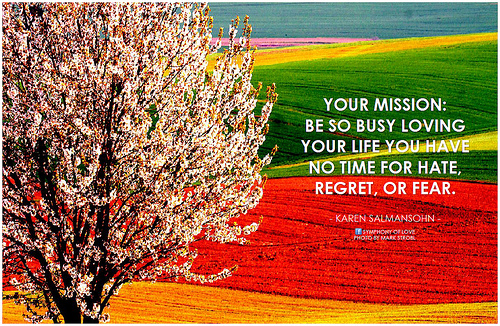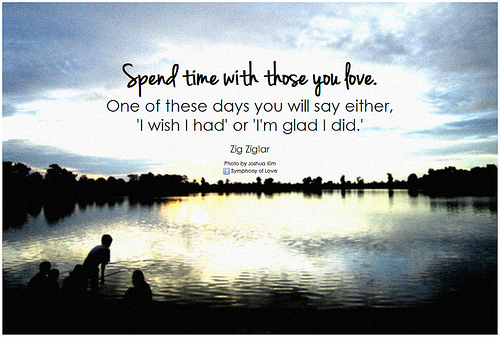Feeling good about feeling good isn’t easy – in fact most of us feel just a little bit guilty or self-conscious when we’re really truly happy. Our culture doesn’t look favorably on true joyfulness – maybe it’s the puritanical roots? I talked a lot about it in the first post in this series, which focuses on the personal drama we create. In this post let’s focus more on the drama and negativity that is culturally conditioned, because as it turns out, there’s a ton of it.
Step 2 to Feeling Good: Ignoring Cultural Negativity
The great myth of Western culture is that we are more financially blessed and privileged as a society and so it logically follows that we must also be happier than other societies, and that those two things are related. Like the happiness maybe comes from something we’ve earned, or bought or treated ourselves to. This isn’t the case. In fact, a remarkable body of research called the “World Happiness Report” found that financial factors play a small part, but social support, freedom to make life choices, generosity and the perception of corruption also have big roles to play. The World Happiness project essentially does a mountain of research to determine which countries are the happiest and how that happiness changes with large world events. The results are highly surprising. Here’s a look at the top 10 countries (U.S. came in #13 if you’re curious) and the key showing what each color represents:

Feeling good about feeling good – the top 10 happiest countries according to the World Happiness Report. (see link in text).

These are the factors that matter in happiness – financial wellbeing, social support, health (as life expectancy) generosity, honesty or corruption of the society you live in and the general angst of your country, summed up in “dystopia.”
All well and good, but what does this mean for our own happiness? Here are a few key points, in the form of actions you can take to boost your happy:
- Stop Watching the News. Especially North American News. Why? Because sadly journalism is a huge industry now and the thing that makes news sell is fear or moral outrage. More people watch more news if it’s scarier, more shocking or more directly threatening to you and generally that means spinning information to have the maximum impact. News is made scarier, bigger, more fearful, more threatening, more anger-provoking or inciting. This is not because the world is more fearful, only because news is a business and fear sells. But really, do you need more anxiety hormones coursing through your bloodstream? Really?
- Let go of Crisis Planning. We are kind of a nation of catastrophizers – everything is going to be something awful. The media has some impact on this because if you listen to the news it sounds like there’s going to be a terrorist showing up on your street at any moment. It’s also just human nature to fear the worst and for god’s sake we have a whole industry of Worst Case Scenario Survival Guides and Zombie Apocalypse Kits. I mean really. Ironically in the World Happiness Report (I’ll call it WHR for short) countries that were impacted by some crisis actually became happier if the social structure was strong (and unhappier if it wasn’t, which leads us to our next point).
The report provided evidence of an interaction between social capital and economic or other crises, with the crisis providing a test of the quality of the underlying social fabric.If the fabric is sufficiently strong, then the crisis may even lead to higher subjective well-being, in part by giving people a chance to work together towards good purpose, and to realize and appreciate the strength of their mutual social support; and in part because the crisis will be better handled and the underlyingsocial capital improved in use.
- Help Your Neighbors. That whole “social fabric” thing that they’re talking about it something that you and I can actually impact. Social fabric is strong if you’re in a community that would get out there and make sure everyone has food and water if the sh*t really did hit the fan. It’s weak if you feel like everyone in your neighborhood would get their gun to safeguard their food and water from looters. So how do we live in a society with good social fabric? Start simple by being a good neighbor and society will follow.
- Don’t Judge. Sure sure, haters going to hate, but you don’t have to be one of them. The WHR shows that freedom to make life choices is a really big deal for happiness and that includes the freedom legally but also socially. This means if you don’t feel like you can do what you want to do (even if it’s legal but socially unacceptable) then your happiness is impacted. Likewise if you’re adding to someone else’s feeling of not-being-able-to-do then you’re making them less happy (and yourself as well). At the end of the day every human on this planet is doing the best they can with what they have so being a little easier on them would help all around.
- Fix What You Can, Drop Everything Else. Someone else said this better than I will ever be able to, so whether you’re a religious person or not, I’m guessing you can grok this:
God grant me the serenity to accept the things I cannot change, courage to change the things I can, and wisdom to know the difference.
– Reinhold Niebuhr
- Give Away. Generosity is a simple step to happiness that you have complete and utter control over. You can choose at any moment to give something to someone, to be generous with kindness, with your smile, with laughter, with love. And it makes YOU happy. You feel good when you help others feel good plain and simple.
- Practice Pronoia. I *love* the whole concept of pronoia as visioned by Rob Brezsny. Pronoia is the opposite of paranoia and involves the deep seated belief that the Universe is conspiring to shower you with blessings. Sure, you could expect the worst, but this is far happier. It is just as likely that the Universe is sneaking up on you to make all your dreams come true as it is that it’s out to get you so might as well engage in some constructive fantasy of the former, rather than the latter (I wrote a whole post on this too).
- Learn Optimism. There’s a whole body of research that suggests joy is a talent that you can practice, cultivate and increase just like any other talent. Let’s do that and start feeling good about feeling good. In fact, there’s a whole book on it.










 Both of these gorgeous images are from http://www.symphonyoflove.net/ – Thanks!
Both of these gorgeous images are from http://www.symphonyoflove.net/ – Thanks!

